Spring is a beautiful season, but for people with asthma, it can bring a wave of challenges. With blooming flowers, rising pollen counts, and changing temperatures, spring allergies can trigger asthma symptoms, making it difficult to breathe. If you have asthma, it’s essential to prepare in advance to manage seasonal triggers effectively. In this guide, we’ll explore how spring impacts asthma and share actionable tips to help you breathe easier.
With Holi around the corner, it’s important to be extra cautious as colors, smoke, and dust can aggravate asthma. Check out our blog How to Manage Asthma During Holi: Avoiding Colours & Dust to stay safe during the celebrations!
How Spring Affects Asthma
Spring allergies are primarily triggered by:
- Pollen from trees, grass, and flowers: High pollen levels can inflame the airways, leading to asthma attacks.
- Fluctuating temperatures: Sudden shifts between warm and cool weather can irritate sensitive lungs.
- Increased humidity: Moist air can promote mold growth, another common asthma trigger.
- Stronger winds: Winds can carry pollen, dust, and pollutants, making the air more challenging to breathe.
In India, pollen from neem, mango, and gulmohar trees is particularly high during spring, making asthma management even more critical.
If you’ve noticed that your asthma symptoms worsen during spring, you’re not alone. Studies suggest that seasonal asthma flare-ups are common due to the combination of allergens and changing weather conditions.
Signs That Spring Allergies Are Affecting Your Asthma
Be aware of these signs that your asthma might be triggered by seasonal allergies:
- Increased wheezing or shortness of breath
- More frequent coughing, especially at night
- Nasal congestion and sneezing
- Tightness in the chest
- Itchy or watery eyes
- Fatigue due to poor-quality sleep
If you experience these symptoms, it’s crucial to take proactive steps to manage your asthma.
Tips to Manage Asthma During Spring
1. Check Pollen Levels Daily
Use weather apps or websites that provide pollen forecasts. On high-pollen days, try to stay indoors, especially during the morning when pollen counts are at their peak.
2. Keep Windows Closed
While fresh air is tempting, keeping windows shut can prevent pollen and outdoor allergens from entering your home. Use air purifiers and air conditioning with HEPA filters to maintain clean indoor air.
3. Wear a Mask Outdoors
A good-quality mask (such as an N95) can help reduce exposure to airborne pollen and other allergens when you step outside.
4. Shower and Change Clothes After Going Outside
Pollen sticks to hair, skin, and clothes. Taking a shower and changing your outfit after being outdoors can minimize exposure.
5. Maintain Your Asthma Medication Routine
Spring is not the time to skip your asthma medication. Ensure you have an updated asthma action plan and take prescribed inhalers or allergy medications as directed by your doctor.
6. Use Nasal Rinses
Since allergic rhinitis often accompanies asthma, rinsing your nose with a saline solution or using a neti pot can help clear out allergens and reduce nasal inflammation.
7. Stay Hydrated
Drinking plenty of water can help keep your airways moist and make mucus easier to clear from your lungs.
8. Consider Allergy Immunotherapy
If seasonal allergies significantly impact your asthma, talk to an allergist about immunotherapy (allergy shots or tablets) that can help build resistance over time.
Preparing Your Home for Spring
- Deep clean your home: Dust and allergens accumulate indoors during winter. Regular cleaning, including washing curtains and vacuuming carpets with a HEPA filter, can reduce indoor allergens.
- Check for mold growth: Mold thrives in damp areas, so inspect bathrooms, basements, and kitchens.
- Replace air filters: Ensure that your HVAC system has clean filters to trap allergens effectively.
- Wash bedding frequently: Pollen can settle on pillows and sheets, so wash them in hot water weekly.
Final Thoughts
Spring doesn’t have to mean struggling with asthma. With proper precautions and an asthma-friendly routine, you can enjoy the season while keeping your symptoms under control. Being proactive, whether by monitoring pollen levels, taking medications consistently, or making small lifestyle adjustments can make a big difference in how you experience spring.
Stay prepared, stay safe, and breathe easier this season! Please share your experience in the asthma friend community.












